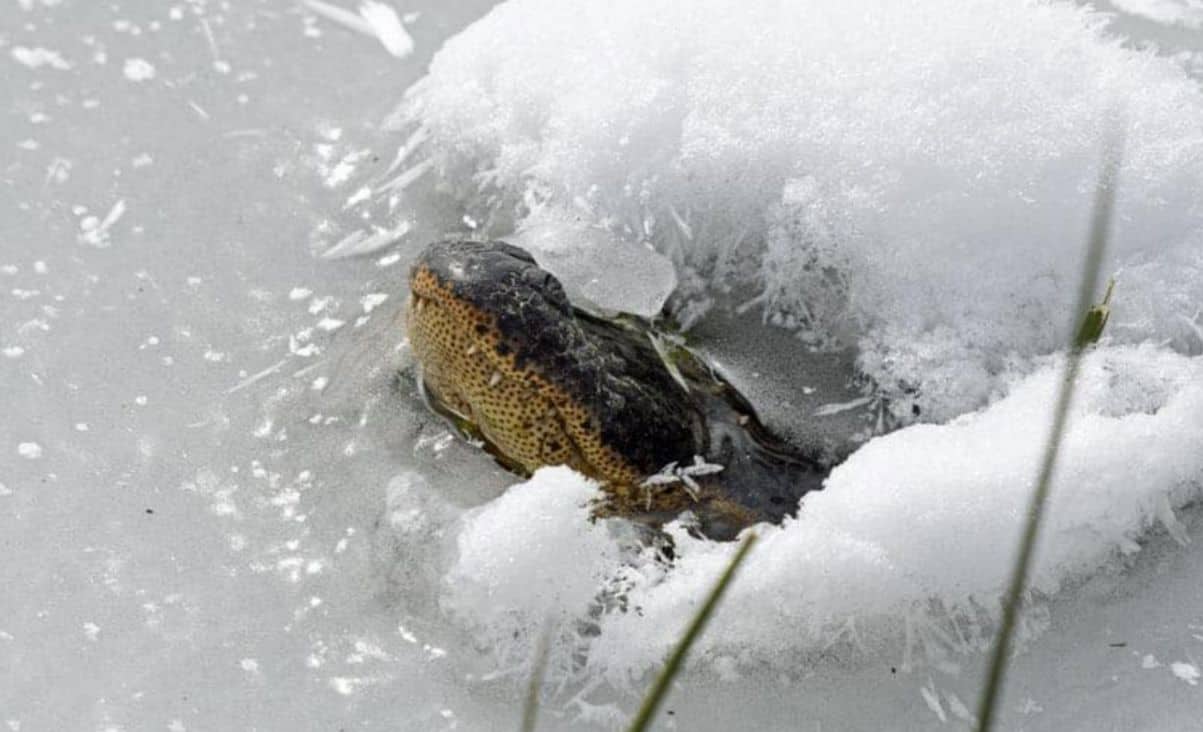After a cold snap hit the southern United States, an unusual scene was recorded on one of Oklahoma’s frozen lakes: snouts of alligators emerging from the cold water.
“During the recent winter storm, we received many questions about alligators and their survival through the severe temperatures that Oklahoma experienced,” wrote the state Department of Wildlife Conservation – ODWC, on its Facebook account when sharing an image of one of those reptiles with its snout in the middle of the icy surface of a lake.
- Brief Anger Hampers Blood Vessel Function Leading to Increased Risk of Heart Disease and Stroke – New Study
- New Blood Test Pinpoints Future Stroke Risk – Study Identifies Inflammatory Molecules as Key Biomarker
- Enceladus: A Potential Haven for Extraterrestrial Life in its Hidden Ocean Depths
- New Experiment: Dark Matter Is Not As ‘DARK’ As All We Think
- Scientists in Fear of This New Predator From Red Sea Eating Native Species in Mediterranean
According to Jena Donnell, ODWC Wildlife Diversity Communication Specialist, the behavior seen in the photo is completely normal.
“Every time the water freezes, this is a natural response [from the alligators]. Since the water they were in froze, they had to create a ‘snorkel’, so they pulled their nose out of the water to keep some of the water free of ice, so they can still breathe,” explained Donnell.
Alligators are poikilothermic, which means that their body temperature fluctuates according to the ambient temperature. That is why they are often found sunning themselves or in burrows, they have dug on the shores of lakes and streams, Live Science explains.
When negative temperatures reach their habitats, these animals get into lakes and rivers, as the water is often warmer than the air. To make sure they have enough oxygen, they poke their snouts through the frozen surface of the water to breathe.
If the water is cold but hasn’t frozen, the alligators often swim deeper, where temperatures are typically higher than in shallow water, Donnell said.
In the ODWC-managed area, however, not all reptiles managed to survive the last cold snap. Donnell couldn’t say how many alligators had died from the extreme temperatures, but according to them, they were young.
“While this is an unfortunate loss, the population remains sustainable, healthy, and is expected to continue to prosper,” ODWC stressed.
